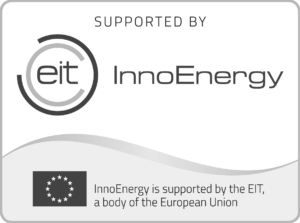03.02.2021
Headache and migraine patients receive help from digital headache clinic
In her fight against migraines, Katrina Laks, CEO of Migrevention, has sought a digital solution to help her assess the frequency of migraine episodes and the effectiveness of treatment. Alongside Estonian headache specialists, she is now in the process of creating an app to make self-monitoring much more effective for patients and support the multidisciplinary treatment of headache and migraine patients.
Katrina Laks describes Migrevention as containing both a patient application and a dashboard for specialists. The patient app comprises a headache diary for daily use (the paid version comes complete with counselling by a headache nurse) as well as a multidisciplinary treatment module based on evidence-based treatment and managed and monitored from the dashboard of a specialist. In addition to counselling by a nurse, the treatment module also includes a module for physiotherapy and cognitive-behavioural therapy, options for patient testing and active treatment-based intervention through audio and video tools.
According to Laks, physical headache diaries are essential for any migraine patient. Neurologists and family physicians also use these diaries to diagnose and monitor migraine and other headache patients. “A headache diary is the most important element of correct headache treatment,” says Katrina Laks. “There can be no efficient treatment without accurate diagnosis and treatment. Today, we have learned from scientific publications that writing physical diaries is often inaccurate because people do it after the related events – the diary isn’t on them or conveniently accessible during migraine episodes.”
“The first digital headache diaries were created around 10 years ago and have since come a long way,” she adds. “However, patients have found many diaries to be too complex. The headache diary included with the Migrevention digital headache clinic was created in cooperation with Estonian patients and headache specialists, taking into consideration the needs of both target groups.”
Scientific research confirms effect of digital solution
The solution has been subjected to scientific research in order to better confirm its effectiveness. “We conducted a comparative clinical pilot trial with 20 patients in the Neurology Clinic of Tartu University Hospital,” says Laks. “We compared conventional and digital treatment and evaluated treatment response and the effectiveness of treatment implementation. Initial trial results indicate that multidisciplinary migraine treatment through a digital application is effective and patients experience fewer days with headaches. In addition, it makes the work of specialists significantly more efficient. One of the goals of the pilot trial was to prepare for subsequent large-scale studies.”
Future plans include comparative studies on larger patient groups, including a separate comparison of each component of digital treatment, e.g. digital counselling with a nurse vs conventional counselling with a nurse, digital physiotherapy vs conventional physiotherapy. The Research Ethics Committee of the University of Tartu has granted permission for all studies.
Need for digital migraine solutions
According to Katrina, migraines have been her unwanted companion for over 15 years. “For the better part of this time, I have been trying to find a digital solution that would benefit treatment efforts by helping me assess the frequency of my migraine episodes and the efficiency of treatment,” says Katrina on the origin of the digital solution. “Estonia is a small country and there are few top specialists around. I met Dr Mark Braschinsky and Triinu Niiberg-Pikksööt at the ‘Migraine Innovation Challenge and Hack’ hackathon at the end of 2018. Mark and I took part in the preparation of the event and also functioned as experts on the jury. The hackathon established the need for a patient- and specialist-friendly solution for migraine treatment, but since none of the participating teams came up with a solution in that time, we took action in the beginning of 2020.”
Migrevention has been successful and ended up in the TOP 12 in the Prototron programme as well as the TOP 30 in the Ajujaht programme. “These programmes have different directions by definition; you could certainly say that one completes the other,” says Katrina on her start-up experience. “Ajujaht, for example, includes a fewer number of training events, but their training courses are very thorough in that they last for an entire day or two and focus on one area. Prototron, on the other hand, provides a brief introduction of everything you need to know in the start-up business. Neither programme offers support targeted specifically towards digital healthcare solutions, but we have been able to receive such support through Connected Health cluster mentoring and the health tech accelerator of Health Founders.”
“In reality, every specialist on our team has prior entrepreneurial experience or close contact with the world of business, meaning that our team has been aware of the risks and hazards of entrepreneurship from the very beginning. Being in a team with top specialists, it has always been clear to all of us that we have to work hard and stay focused on our common goal,” assures Katrina.












